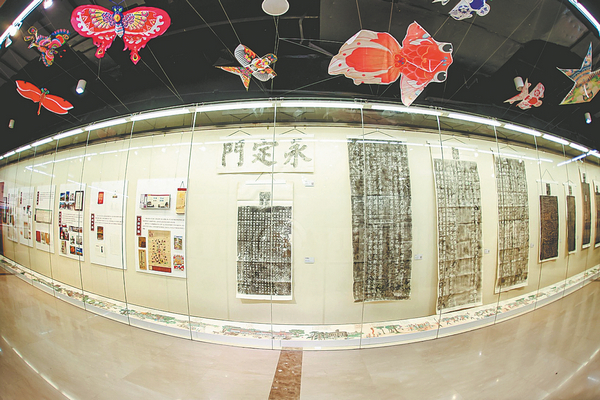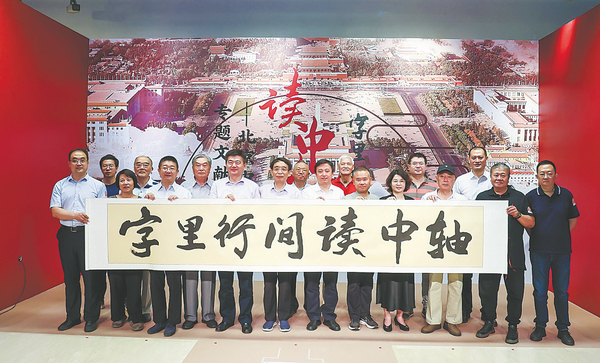

An exhibition showcasing documents relevant to the history and transformation of Beijing's Central Axis recently opened at the Capital Library of China in Beijing. The exhibition runs until Aug 24.
Beijing's Central Axis refers to the core structure of the city, which runs 7.8 kilometers from south to north, encompassing a remarkable collection of historical and architectural sites.
The ideal ancient model for a Chinese capital was outlined in the Rites of Zhou, a Confucian text on bureaucracy and organizational theory that dates back over 2,200 years. The text's model became reality with the development of Beijing.
Mao Yajun, director of the library, said at the opening, "The Central Axis of Beijing encapsulates the essence of the city and its architecture and embodies the profound philosophical thoughts of China, as well as highlighting the cultural depth and confidence of Beijing as a national capital."
The exhibition unfolds from nine perspectives about the sites, including history, architecture, lifestyle and nature.

More than 200 exhibits that are included cover a variety of documentation, from books, newspapers and journals to tablet rubbings, photographs, paintings and letters.
At the exhibition, visitors are able to engage in hands-on activities with expert guidance, such as creating rubbings from tablet inscriptions. They can also participate in quizzes for a chance to win prizes including envelopes, books or reader's cards.
During the course of this exhibition, 16 themed lectures will also be hosted, featuring experts and scholars who participated in the authorship of a book series on the Central Axis, as well as artists who have contributed their works to the exhibition.
Mao says the library has been leveraging its collections and resources, particularly those unique to Beijing, and delving into the history and culture of the Central Axis.
"In recent years, we have carried out a diverse range of activities, including three lecture series, which tell stories about the Central Axis from various perspectives. Exhibitions have centered on the heritage, displaying both artifacts and literature, and have attracted tens of thousands of visitors," she adds.
"We also pay attention to the axis' current development, Beijing's urban construction and its rich connections with citizens' everyday lives. The library's animation platform has created an original cartoon series that allows children to explore that heritage online."
The exhibition is cohosted by the library and the culture and tourism bureau of Beijing's Dongcheng district, and has been organized by the Beijing Dongcheng District Library.
"Through this exhibition, we also hope to draw from the abundant professional resources from both libraries, present the sublimity of the Central Axis, and attract more people to pay attention to it and actively participate in the preservation of the historical city," says Tang Li, deputy director of Dongcheng district.
The exhibition offers free admission to all visitors. Books about the Central Axis of Beijing can be borrowed at self-service checkout machines.
chengyuezhu@chinadaily.com.cn